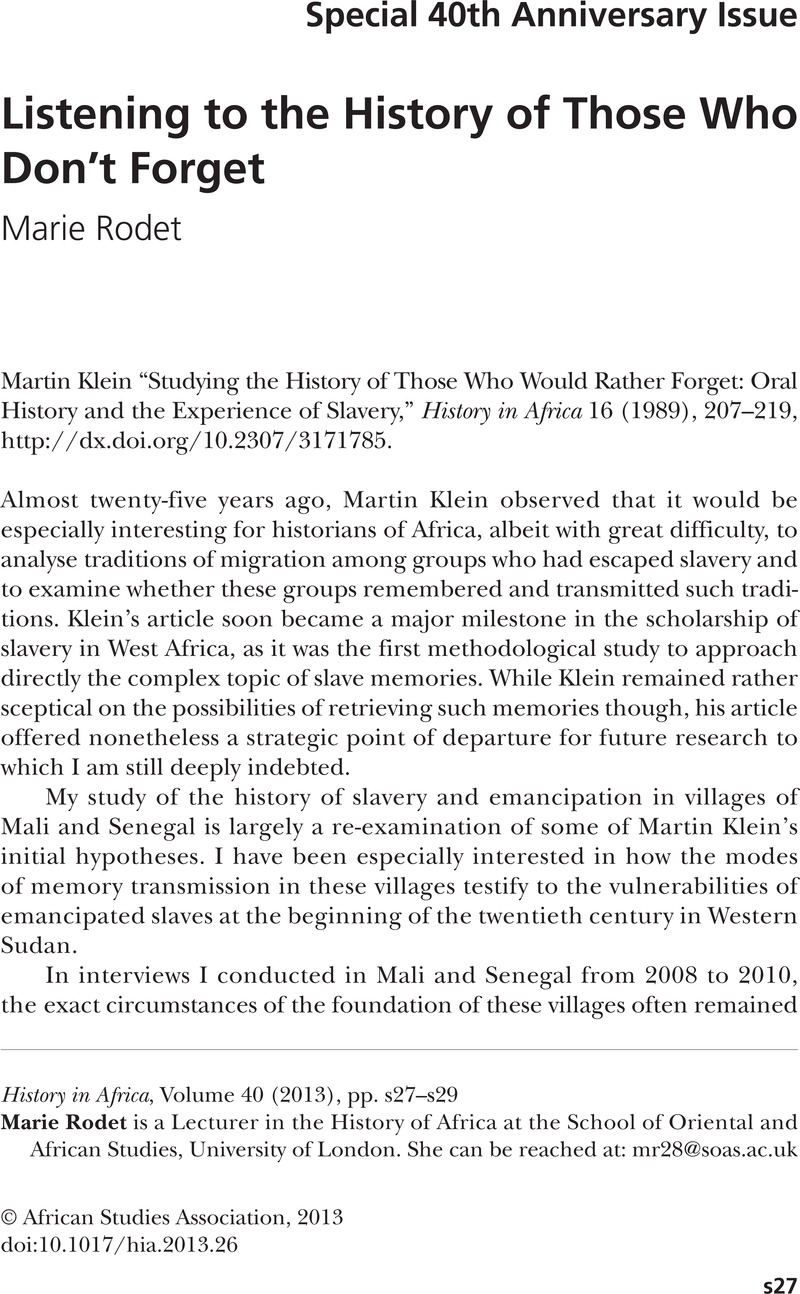Article contents
Listening to the History of Those Who Don’t Forget
Published online by Cambridge University Press: 15 November 2013
Abstract

- Type
- Research Article
- Information
- History in Africa , Volume 40 , Issue s1: Special 40th Anniversary Issue , November 2013 , pp. s27 - s29
- Copyright
- Copyright © African Studies Association 2013
References
1 Rossi defines “public secret” as “knowledge widely shared within society, but hardly articulated except for comments, gossip, and fragments of recollections and oral traditions that might spontaneously surface in daily conversations.” See: Benedetta Rossi, “Introduction: Rethinking Slavery in West Africa,” in: Benedetta Rossi (ed.), Reconfiguring Slavery: West African Trajectories (Liverpool: Liverpool University Press, 2009), 10.
2 However, recent groundbreaking research has demonstrated how non-discursive practices such as dances and ritual practices may have recorded the traumatic memories of Atlantic slave trade and the extreme violence inherent to it. See: Nicholas Argenti and Ute Röschenthaler, “Introduction: Between Cameroon and Cuba: Youth, Slave Trades and Translocal Memoryscapes,” Social Anthropology 14–1 (2006), 33–47; Rosalind Shaw, Memories of the Slave Trade. Ritual and the Historical Imagination in Sierra Leone (Chicago: University of Chicago Press, 2002).
- 2
- Cited by




